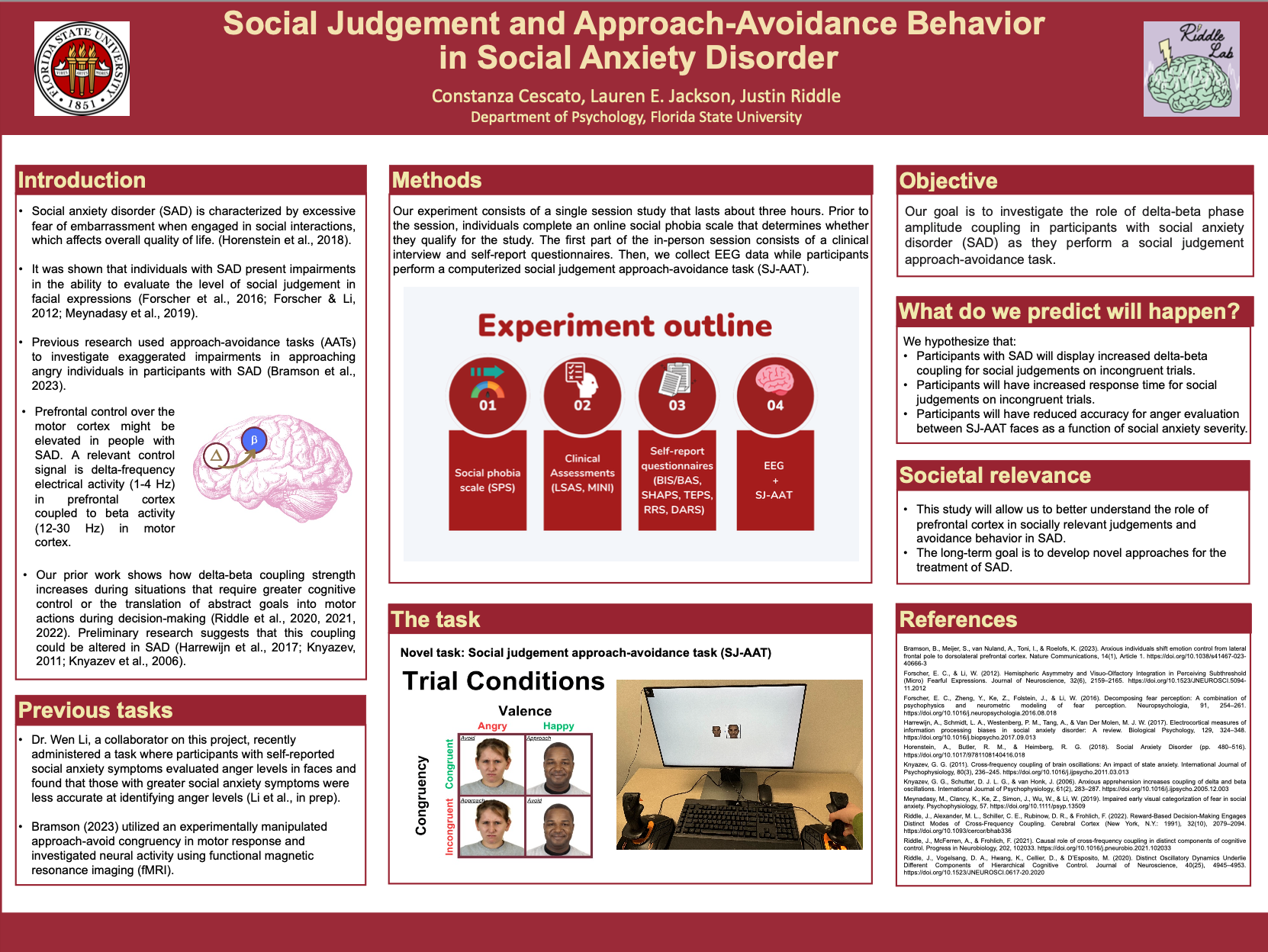Research Symposium
24th annual Undergraduate Research Symposium, April 3, 2024
Constanza Cescato Poster Session 5: 4:00 pm - 5:00 pm/389

BIO
I am a pre-medical student with a strong interest in neuroscience, specifically the interaction between neural networks and cognition. Being born and raised in Argentina, I am also passionate about enhancing inclusivity within the healthcare system, particularly by addressing language barriers. This is why I am a Spanish Medical Interpreter and why I provide tutoring for English as a Second Language (ESL) adults. In the future, I aim to be a physician.
Social Judgement and Approach-Avoidance Behavior in Social Anxiety Disorder
Authors: Constanza Cescato, Dr. Justin RiddleStudent Major: Behavioral Neuroscience
Mentor: Dr. Justin Riddle
Mentor's Department: Psychology Mentor's College: College of Psychology Co-Presenters:
Abstract
Social anxiety disorder (SAD) is characterized by excessive fear of embarrassment when engaged in social interactions, which affects overall quality of life. There are two emerging concepts used to characterize social anxiety: impaired social judgment and approach-avoidance bias. Previous research has used approach-avoidance tasks (AATs) to investigate exaggerated impairments in approaching angry individuals in participants with SAD. Our prior work shows how delta-beta coupling strength increases during situations that require greater cognitive control or the translation of abstract goals into motor actions during decision-making. Furthermore, there is preliminary research suggesting that delta-beta coupling could be altered in SAD. In this study, participants perform a novel computerized task (SJ-AAT) while EEG data is recorded. This task requires them to make a social judgment and then approach or avoid an angry face using a joystick. On some trials (incongruent), participants should approach the angry faces, a behavior that represents greater conflict in participants with SAD. As a control condition, we include happy faces. We hypothesize that participants with SAD will display increased delta-beta coupling for social judgements on incongruent trials. Additionally, we hypothesize that participants will have increased response time for social judgements on incongruent trials and that participants will have reduced accuracy for anger evaluation between SJ-AAT faces as a function of social anxiety severity. This study will allow us to better understand the role of the prefrontal cortex in socially relevant judgements and avoidance behavior in SAD. The long-term goal is to develop novel approaches for the treatment of SAD.
Keywords: social anxiety delta-beta oscillations approach-avoidance task (AAT) perception


